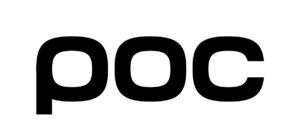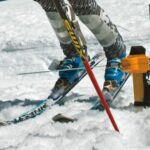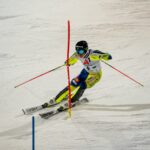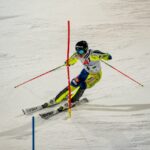Yes, the 2022-23 race season is over and you are looking back at it with either pride or disappointment. Whichever emotion you feel, please do feel it (deeply) for a little while, then put the past behind you and turn your gaze to the future, meaning next season.
Being the best ski racer you can be is not a part-time activity. It requires a year-round commitment and consistent effort in your physical, technical, tactical, and, yes, mental training. If you’re a ski racer serious  about achieving your competitive goals, the end of the race season simply means it’s time to start your preparations for next season. After a short period of rest and relaxation, say, a week or two, you need to start executing your prep-period training plan that will get you ready to continue your progress toward your goals next winter.
about achieving your competitive goals, the end of the race season simply means it’s time to start your preparations for next season. After a short period of rest and relaxation, say, a week or two, you need to start executing your prep-period training plan that will get you ready to continue your progress toward your goals next winter.
Goal Setting
To help you figure out what to do during the summer prep period, write down your goals for next season. The first goal you should look at is your long-term goal, that is, what you ultimately want to accomplish in your ski racing. Ask yourself whether that “dream” goal needs to be changed (upward or downward) or are you still on track for it. Next, set a seasonal goal for what you want to accomplish next winter in terms of results, rankings, etc.
Then, using the information you gained from your evaluation of last year (read my last article) and feedback from your coaches, set specific goals for your physical conditioning, technical and tactical development, and mental training to achieve those goals. These goals should be specific (e.g., amount of weight lifted, frequency of workouts) and structured into a weekly training plan. The idea is that every day when you get up, you know exactly what you need to do that day to progress toward your next season’s goals.
development, and mental training to achieve those goals. These goals should be specific (e.g., amount of weight lifted, frequency of workouts) and structured into a weekly training plan. The idea is that every day when you get up, you know exactly what you need to do that day to progress toward your next season’s goals.
Mental Muscles and Mental Toolkit
The off season is the ideal time to work on the mental side of your ski racing. Here’s my challenge to you: If you’re not engaged in a regular mental training program, you’re just not doing everything you can to become the best ski racer you can be. There are four mental muscles that you must exercise consistently to strengthen your mind, just as you are exercising your physical muscles with a structured conditioning program.
Motivation. Your ability to commit to the goals that you set will depend on how motivated you are to put in the hard work, even when you’re tired, bored, in pain, or wanting to do things that are much more fun.
Develop an organized weekly training program to help you build your training into your daily activities. If you have a plan, you’re more likely to stick to it. Also, find a training partner to work out with; you’ll be less likely to skip workouts when you feel unmotivated because your partner will be counting on you and you’ll work harder because someone is pushing you to do that extra rep, set, or drill. And post reminders where you can see them of your greatest competitors (“Am I working harder than they are?”), racers whom you admire, or motivational quotes that inspire you.
Confidence. A major purpose of off-season training is to build confidence in your ability to ski consistently fast. Think of it as putting money in the bank: The more confidence “money” you deposit now, the bigger confidence “withdrawals” you’ll be able to make next winter. If you’re working hard and improving during the off-season, when the winter begins, you’ll have the confidence that you have done everything possible to ski your best and achieve your goals.
Intensity and focus. An important off-season goal for you is to identify and consistently maintain your ideal physical intensity (e.g., get fired up or calmed down) in the gym and in your on-snow training. Equally essential is strengthening your focus in all of your efforts to remove distractions and ensure quality training. You can work on developing your intensity and focus muscles during both physical conditioning and on-snow training (more on that in a future article).
Mental imagery. Mental imagery is perhaps the most powerful tool you can use in your mental training during the off-season. Mental imagery involves regularly seeing and feeling yourself skiing the way you want in different training and race situations. You should think of imagery as “weight training for the mind,” it can strengthen your physical, technical, tactical, competitive, performance, and mental “muscles.” And just like with a conditioning program, you must commit to its consistent use to gain its many benefits. I will go into more detail about mental imagery in a future article.
Are You “All in?”
You don’t have to commit yourself 100% if you just want to enjoy ski racing. But if you want to be your best (or the best!), you have to go “all in.” To see whether you are willing to go all in, ask yourself these questions:
- How big are your ski racing goals for next season?
- How hard are your competitors going to be working in the off-season?
- How badly do you want it?!?!
The key to achieving your goals next winter is to start now! Talk is cheap. It’s easy to say you want to be a great ski racer; it’s an entirely different thing to actually do the work necessary. If your goals are at all high, the only chance you will have is to commit to intensive off-season physical, on-snow, and mental training programs. Your goal when you get in the starting gate of your first race next season is to be able to say: “I’m as prepared as I can be to achieve my goals.” And, though there are no guarantees in our sport, with all of that hard work you put in during the prep period that you “deposited in the bank,” you give yourself a chance to ski your fastest and reach your ski racing goals.






